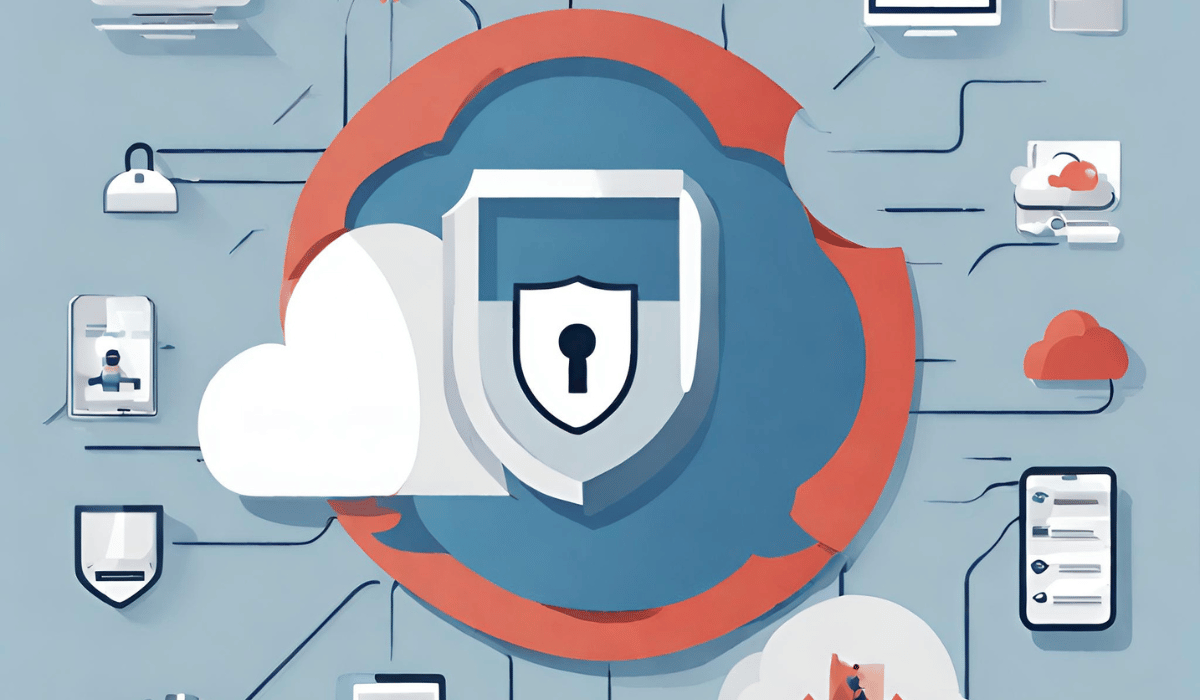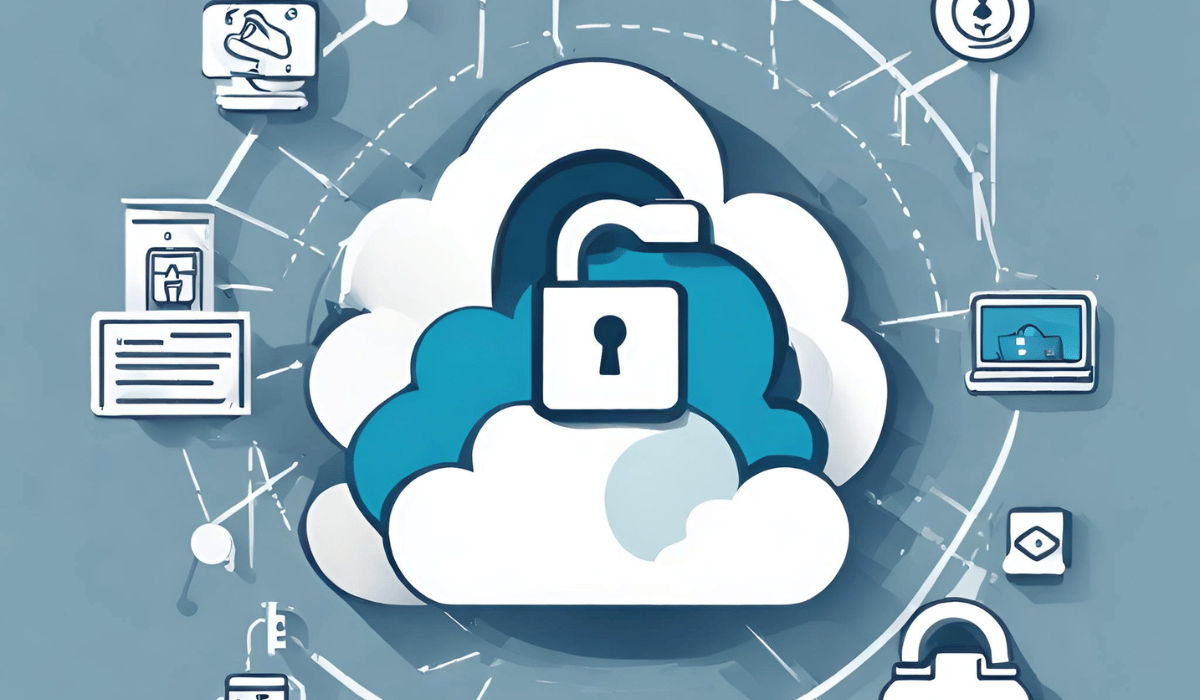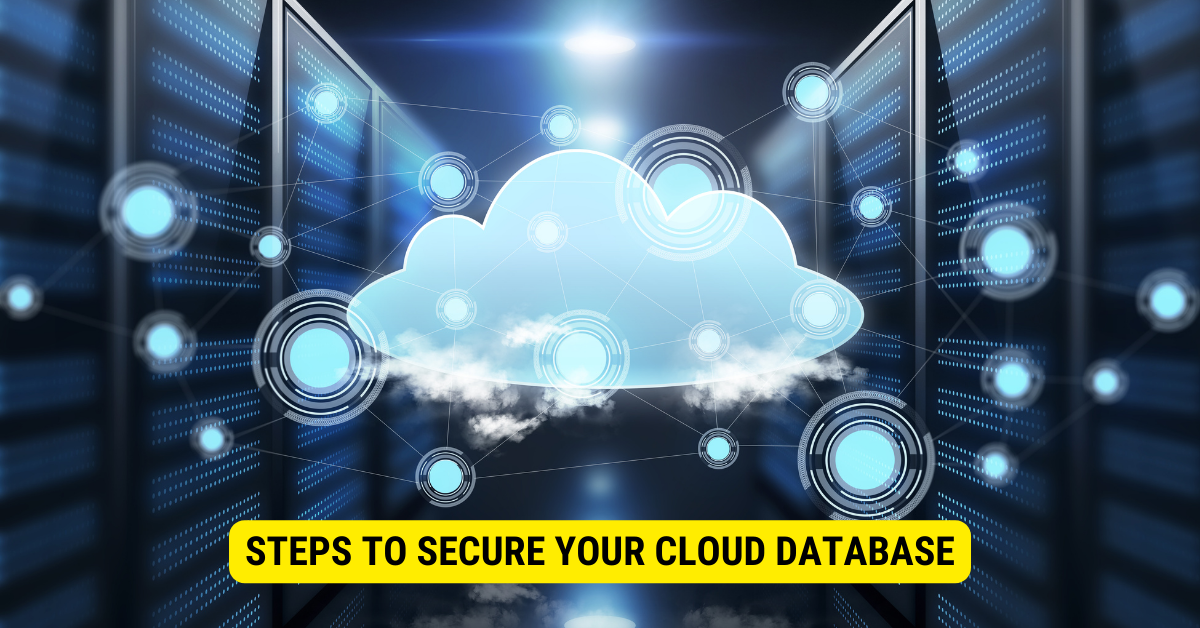To secure your data in a cloud database, you should implement robust authentication and authorization measures, encrypt data at rest and in transit, conduct regular backups and recovery planning, perform routine audits, and manage data access effectively. Choosing a reliable cloud database provider with comprehensive security features is essential, as is training employees in security best practices. Securing a cloud database is a shared responsibility among you, your employees, and your cloud provider.
In today’s digital era, where businesses rely heavily on technology for their operations, ensuring the security of sensitive data has become more important than ever. With the increasing popularity of cloud databases, it is crucial to understand the importance of cloud database security and take the necessary steps to protect your data from potential breaches. We will explore the risks of unsecured data, the basics of cloud database security, steps to secure your cloud database, advanced security measures, and how to maintain your cloud database security.
Understanding the Importance of Cloud Database Security

When it comes to cloud databases, security should be your top priority. With the vast amount of data stored in the cloud, any breaches or unauthorized access can lead to dire consequences for your business. Not only can it effect in financial losses, but it can also cause reputational damage and loss of customer trust. Therefore, understanding the risks associated with unsecured data is essential.
Cloud database security involves implementing measures to protect your data from unauthorized access, ensuring its integrity and confidentiality. It includes various strategies such as encryption, access controls, and regular audits. By applying these security measures, you can safeguard your data and minimize the risks associated with cloud databases.
The Risks of Unsecured Data

Storing your data in a cloud database without proper security can expose it to various risks. Hackers and cybercriminals are continuously looking for susceptibilities to exploit, and unsecured data provides them an open invitation. Some of the risks include:
- Data breaches: Without adequate security, hackers can gain unauthorized access to your data, leading to data breaches and potential loss or theft of sensitive information.
- Data loss: Any accidental deletion or corruption of data can lead to permanent loss, causing disruptions to your business operations.
- Compliance violations: Inadequate security measures can result in non-compliance with data protection regulations, leading to legal penalties and fines.
Data breaches can have severe penalties for businesses. Not only can they result in financial losses due to legal fees and compensating affected parties, but they can also harm a company’s reputation. Clients may lose trust in the organization’s capability to protect their data, leading to a loss of business. Additionally, data loss can disrupt business operations, causing delays and potential financial setbacks. Compliance violations can effect in hefty fines and damage to the company’s standing in the industry.
Why Cloud Database Security Matters

Securing your cloud database is crucial for several reasons. Firstly, it protects your sensitive information from falling into the wrong hands. You can guarantee that only authorized individuals can access your data by implementing robust security measures such as encryption and access controls.
Additionally, cloud database security helps you maintain compliance with data protection regulations. Depending on your industry and your business location, you may be subject to various data protection rules and regulations, such as the GDPR in the EU. Letdown to comply with these rules can effect in significant penalties and fines. Implementing proper security measures demonstrates your commitment to data protection and helps you avoid legal consequences.
Furthermore, cloud database security builds trust among your customers and partners. Data breaches and privacy concerns are widespread in today’s digital age. Customers want to know their data is safe when interacting with your business. By prioritizing cloud database security, you can assure your customers that their information is protected, thus building trust and loyalty.
In conclusion, cloud database security is paramount in today’s digital landscape. By understanding the risks associated with unsecured data and implementing robust security measures, you can protect your data, maintain compliance, and build trust among your customers and partners. Don’t overlook the significance of cloud database security – it can make or break your business.
Basics of Cloud Database Security
Before delving into the steps to secure your cloud database, it is essential to understand the basics of cloud database security. Two fundamental components of cloud database security are encryption and authentication.
Encryption plays a vital role when protecting your valuable data stored in the cloud. But what exactly is encryption? Encryption is the process of encoding information to safeguard it from unauthorized access. It involves converting plain text into ciphertext that can only be cracked using a decryption key. By encrypting your data, even if unauthorized individuals access it, they cannot understand or use it.
Different types of encryption algorithms are available, such as Advanced Encryption Standard (AES) and RSA. These algorithms use complex mathematical computations to ensure the confidentiality and integrity of your data. By implementing strong encryption measures, you can add an additional layer of defense to your cloud database.
What is Encryption?
Encryption is not just about transforming data into an unreadable format. It also helps in maintaining data integrity. When data is encrypted, any unauthorized modifications or tampering attempts will render the data useless. Encryption provides assurance that the data remains intact and unaltered, even when stored or transmitted through insecure channels.
Modern encryption techniques also protect your data at rest and in transit. Data at rest refers to the data stored in the cloud database, whereas data in transit refers to the data transmitted between different systems or devices. Encrypting DAR and in DAT can mitigate the risk of unauthorized access and eavesdropping.
The Role of Authentication
Authentication is another crucial aspect of cloud database security. It is the process of verifying the identity of users accessing the cloud database. Authentication ensures only authorized individuals can access the data, thwarting unauthorized access and potential data breaches.
Various authentication methods are available, ranging from simple username and password combinations to more advanced techniques like multifactor authentication (MFA). MFA adds an additional security layer by demanding users to provide multiple evidences to prove their uniqueness. This can include something they know (e.g., a password), something they have (e.g., a physical token), or something they are (e.g., biometric data).
Strong authentication measures are essential to protect your cloud database from unauthorized access. By combining encryption and authentication, you can establish a robust security framework for your cloud database, ensuring your data’s confidentiality, integrity, and availability.
Steps to Secure Your Cloud Database

Now that you are familiar with the importance of cloud database security and the basics, let’s explore the steps you can adopt to secure your cloud database.
Securing your cloud database is of utmost importance in today’s digital landscape. With the increasing number of cyber threats and data breaches, it is crucial to implement robust security measures to protect your sensitive information. we will delve deeper into the steps you can take to ensure the security of your cloud database.
Choosing the Right Cloud Service Provider
The first step in securing your cloud database is selecting a reliable and trustworthy cloud service provider (CSP). With numerous CSPs available in the market, choosing one that prioritizes security is essential. Look for CSPs with a proven track record in safeguarding customer data and offering advanced security features.
When evaluating potential CSPs, consider their security certifications and compliance with industry standards. Look for providers offering built-in encryption and robust access controls to ensure your data is always protected. Additionally, consider their data backup and disaster recovery capabilities to ensure the continuity of your business operations.
Implementing Strong User Authentication
Strong user authentication is crucial for preventing unauthorized access to your cloud database. Implementing robust authentication measures adds more security to your cloud infrastructure.
One effective method of user authentication is multifactor authentication (MFA). MFA requires users to provide multiple pieces of evidence to verify their identities, such as a password, a fingerprint scan, or a one-time verification code sent to their mobile device. By implementing MFA, you can significantly reduce the risk of unauthorized access to your cloud database.
In addition to MFA, enforcing strong password policies is essential. Encourage your users to create complex passwords that combine uppercase and lowercase letters, numbers, and special characters. Regularly prompt users to update their passwords to minimize the risk of password-related security breaches.
Using Encryption for Data Protection
Encryption is a fundamental security measure that adds more protection to your data. Encrypting your data ensures that it remains unreadable and useless even if it is accessed without authorization.
Implementing end-to-end encryption for data stored in your cloud database is crucial. This means that data is encrypted before it leaves the user’s device and remains encrypted throughout its journey to the cloud while at rest in the database. Only authorized users with the decryption key can access and decipher the encrypted data.
Various encryption methods are available, such as symmetric encryption, asymmetric encryption, and hashing algorithms. Choosing the appropriate encryption method is important based on your specific requirements and the sensitivity of the data being stored.
Furthermore, consider implementing encryption for data in transit as well. This ensures that data between your cloud database and user devices is protected from interception and eavesdropping.
In conclusion, securing your cloud database requires a multi-layered approach. By carefully selecting a reliable cloud service provider, implementing strong user authentication measures, and using encryption for data protection, you can significantly enhance the security of your cloud database and safeguard your valuable information.
Advanced Cloud Database Security Measures
In addition to the basic security measures, advanced security measures can further strengthen your cloud database security.
Role-Based Access Control
Implement role-based access control (RBAC), which restricts access to data based on the user’s role within the organization. This ensures that users can only access the data they need to perform their specific tasks.
Regular Security Audits
Conduct regular security audits to identify any vulnerabilities or weak points in your cloud database security. By proactively finding and addressing these issues, you can prevent potential breaches.
Maintaining Your Cloud Database Security
Securing your cloud database is not a one-time task; it requires ongoing maintenance and vigilance. Here are some important steps to maintaining cloud database security.
Keeping Software and Systems Updated
Regularly update your cloud database software and systems to ensure that you are using the latest versions with the latest security patches. Outdated software can be prone to vulnerabilities that hackers can exploit.
Regularly Monitoring and Reviewing Access Logs
Monitor and review access logs to identify suspicious activities or unauthorized access attempts. By staying vigilant, you can quickly respond to potential security threats and take necessary actions to prevent data breaches.
Key Takeaways
- Cloud databases are increasingly popular due to their scalability, availability, and flexibility.
- Securing your cloud database is essential due to the rising number of cyber threats and the valuable nature of data.
- Steps to secure your data in a cloud database include authentication, authorization, encryption, regular backups, and recovery planning, audits, and effective data access management.
- Choosing the right cloud database provider, with key security features and a strong security track record, is crucial.
- Employees play a vital role in maintaining cloud database security through adherence to security practices.
FAQs
What is a cloud database?
A cloud database is a service built and accessed through a cloud computing platform. It provides the same functionality as a traditional database with the added benefits of scalability, availability, and flexibility.
Why is cloud database security important?
With more data moving to the cloud, it becomes an attractive target for cybercriminals. Therefore, ensuring the security of your cloud database is essential to protect your data from potential threats.
How can I secure my data in a cloud database?
Securing data in a cloud database involves multiple steps, including authentication and authorization, encryption, regular backups and recovery planning, regular audits, and effective data access management.
What should I look for in a cloud database provider?
Key security features in a cloud database provider include data encryption, regular backups, secure access controls, regular security updates, and a strong reputation and track record in security.
What role do employees play in cloud database security?
Employees play a vital role in maintaining cloud database security. Regular training and awareness programs can help them understand and adhere to security best practices.
Conclusion
In conclusion, securing your data in a cloud database is paramount in today’s digital landscape. By understanding the risks associated with unsecured data, implementing basic security measures such as encryption and authentication, following the necessary steps to secure your cloud database, adopting advanced security measures, and maintaining your cloud database security through regular monitoring and updates, you can protect your sensitive data and ensure the smooth functioning of your business.
